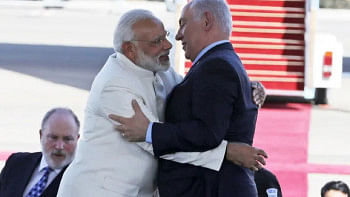Safe migration still a far cry

For a country whose economy is largely dependent on the hard-earned remittances sent by its expatriate workers, Bangladesh has failed miserably to protect the rights of its migrants both at home and in the destination countries. While at home, the high cost of migration and a lack of knowledge about the overall migration process pose major challenges for the aspirant migrant workers, in destination countries, they often face unemployment, lower salaries than promised, harsh working conditions, and physical abuse, which in many cases, even lead to their deaths. Has our government done enough to ease the migration process over the years? More importantly, has it taken any action to hold the destination countries accountable for the deaths, mistreatment and rights violations of our workers?
According to the Bureau of Manpower, Employment and Training (BMET), approximately 12.1 lakh of our workers have migrated abroad till November this year, 3.29 lakh of whom went to Malaysia alone. Recently, a telephone survey was conducted by the Refugee and Migratory Movements Research Unit (RMMRU) on 218 returnee migrants, which found that 64 percent of the respondents experienced some form of rights violation in the destination countries.
While at home, the high cost of migration and a lack of knowledge about the overall migration process pose major challenges for the aspirant migrant workers, in destination countries, they often face unemployment, lower salaries than promised, harsh working conditions, and physical abuse, which in many cases, even lead to their deaths. Has our government done enough to ease the migration process over the years?
While rights violations take place in most destination countries, the situation is particularly worse in Saudi Arabia, where a large number of our workers had to lose their lives. Reportedly, bodies of at least 45,301 male and female migrant workers arrived in the country between 2008 and June, 2022, with a staggering 12,930 deaths having taken place in Saudi Arabia alone. Yet, we, as a nation, seem complacent in accepting these deaths as an inevitable byproduct of remittance earning.
Meanwhile, at home, the average recruitment cost for a Bangladeshi migrant worker is Tk 3.81 lakh, although the government fixed rate is Tk 1.66 lakh for 14 countries. This is because the migration process is driven mostly by middlemen who charge exorbitant amounts for their services. Why has the government failed to make the migration process transparent, after repeated promises of doing so?
We urge the government to protect the rights of our workers both at home and in the destination countries instead of simply paying lip-service. It needs to increase the capacity of its missions abroad so that they can stand by our workers in need and hold the countries accountable for any kind of rights violations. To safeguard the rights of our workers at home, our expatriate welfare ministry needs to ensure that the aspirant migrants are not robbed by the middlemen. Additionally, steps need to be taken to upskill our workers so that they can opt for better jobs abroad.


 For all latest news, follow The Daily Star's Google News channel.
For all latest news, follow The Daily Star's Google News channel. 









Comments